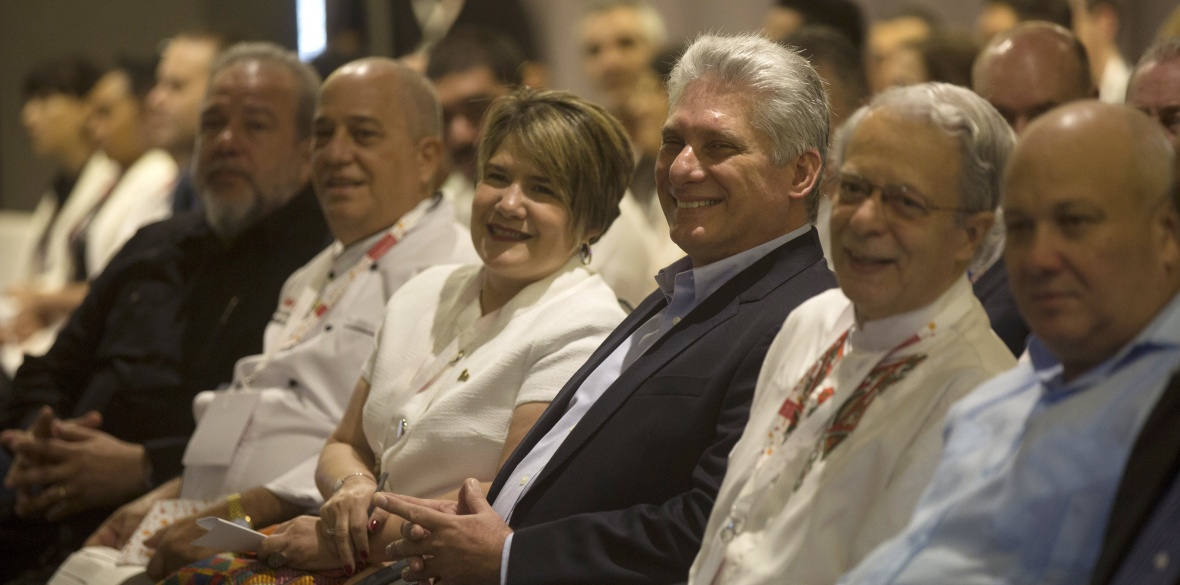This is the last article you can read this month
You can read more article this month
You can read more articles this month
Sorry your limit is up for this month
Reset on:
Please help support the Morning Star by subscribing here
CUBA’S economy is on course to grow by 1 percent In 2020, according to government figures, despite the economic blockade and increased political pressure from the United States last year.
The remarkable achievement has been made against a backdrop of Washington stepping up “economic warfare” against the socialist island, with tougher sanctions and a commercial and financial blockade.
Deputy Prime Minister and Minister of Economy and Planning Alejandro Gil Fernandez highlighted Cuba’s economic results over the last 12 months, which saw growth of around 0.5 per cent.
He said the fact that Cuba managed to come through 2019 without going into economic decline was a testament to the country’s resilience in “an extremely tense year.”
"The Economic Commission for Latin America and the Caribbean has made an estimate of economic growth for the region on the order of 0.1% in 2019. We have forecast 0.5%. We are making the final calculations and should be at that level,” he explained.
“This result was influenced mainly by social sectors such as health and education, as well as communications and construction, with works in the Mariel Special Development Zone (ZEDM), repairs following the tornado, the construction of 4,000 hotel rooms for tourism and the completion of more than 40,000 homes.
“We are talking about modest growth, which still does not have an impact on quality of life; but we reiterate that what is really significant is not having declined.”
Cuba was hit by fuel shortages last year as a result of the aggressive escalation by US President Donald Trump, but Mr Fernandez said the government was able to adapt and redirect resources and short-term economic strategies.
Tourism and foreign investment was impacted after Mr Trump activated parts 3 and 4 of the controversial Helms-Burton Act.
Originally passed into law in 1996 by the Clinton administration, it aimed to strengthen the US trade embargo.
As a result cruise-ship travel to Cuba came to an abrupt end, meaning that around 800,000 passengers did not visit the island.
“The US government insists on saying the blockade is not against the people. But who is affected, if not the people, by the limitations on public transportation, electricity, food production?” he asked.
Mr Fernandez said that Cuba was prepared for an anticipated tightening of the blockade in the coming year with the National Assembly identifying 12 priorities for the economy in 2020, including diversification and “serious action around exports.”
He reiterated that the measures taken would help achieve the aim of 1 per cent growth for 2019 and that Cuba would not be deterred by the US.
“This is our strategy and we are not going to vary it even a millimetre, in response to the aggressiveness of the blockade.”












